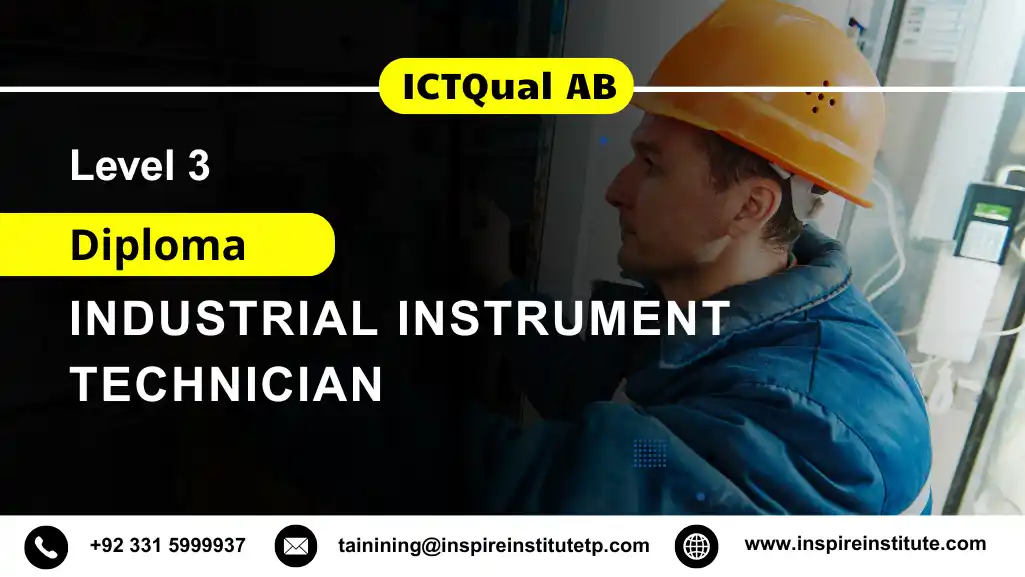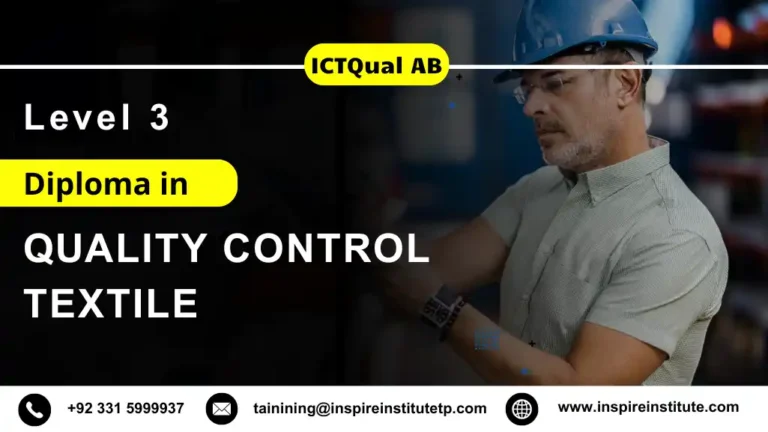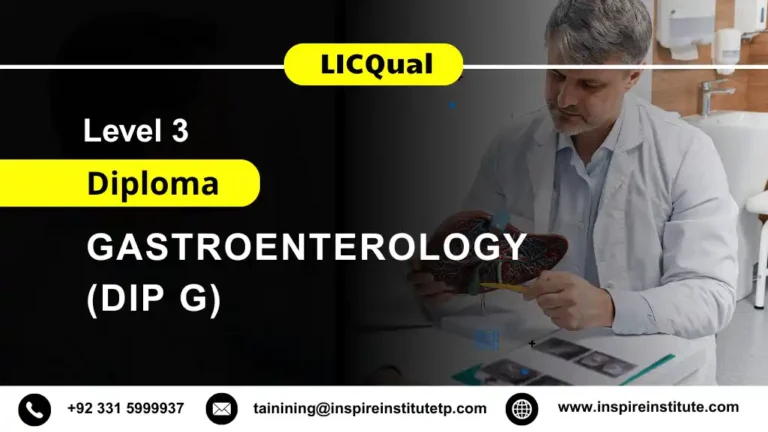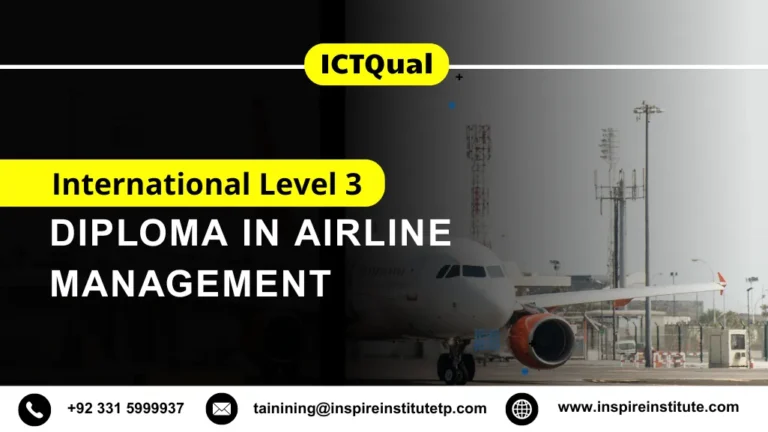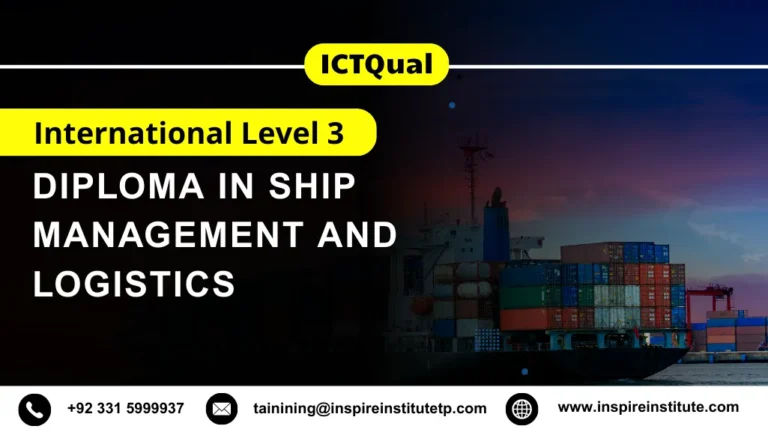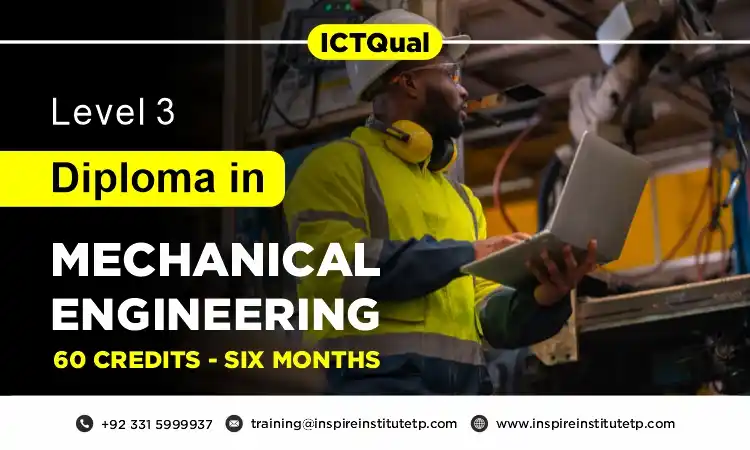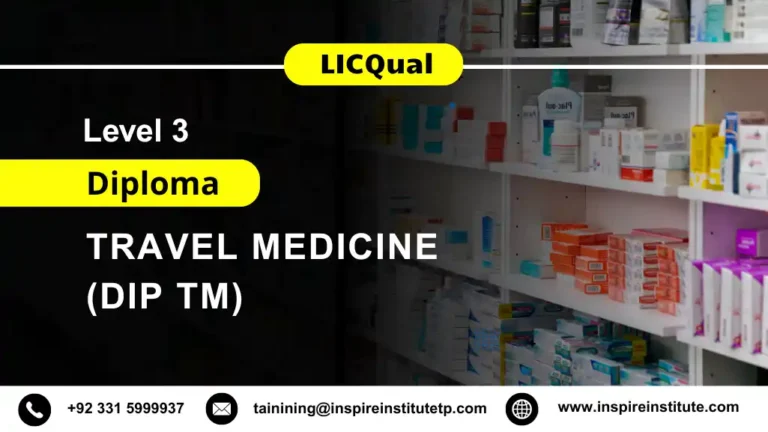ICTQual AB Level 3 Diploma in Industrial Instrument Technician
The ICTQual AB Level 3 Diploma in Industrial Instrument Technician is a highly respected qualification designed to provide learners with the technical expertise and practical skills required to excel in industrial instrumentation and control systems. In today’s rapidly evolving industrial landscape, precise instrumentation is critical for ensuring operational efficiency, safety, and quality across sectors such as manufacturing, oil and gas, power generation, and automation. This diploma equips learners with the essential competencies to meet these demands while preparing them for professional growth and technical leadership roles.
The primary purpose of the ICTQual AB Level 3 Diploma in Industrial Instrument Technician is to develop a comprehensive understanding of industrial measurement systems, control technologies, and process instrumentation. Learners gain in-depth knowledge of sensors, transmitters, actuators, and control devices, along with an understanding of system integration and process optimisation. The course also focuses on troubleshooting, calibration, and maintenance techniques, ensuring graduates are capable of managing complex industrial systems with confidence.
The ICTQual AB Level 3 Industrial Instrument Technician course also strengthens problem-solving, analytical, and decision-making skills. Participants are trained to identify operational faults, implement corrective measures, and optimise process efficiency. The course fosters attention to detail, safety awareness, and adherence to international standards, ensuring graduates can operate in compliance with industrial regulations while maintaining high-quality performance.
The ICTQual AB Level 3 Diploma in Industrial Instrument Technician is a career-focused, globally recognised qualification that bridges the gap between technical theory and practical application. Graduates acquire the knowledge, skills, and professional confidence needed to excel in modern industrial environments, ensuring long-term career growth and expertise in industrial instrumentation and control systems.
Why Choose this Qualification
The ICTQual AB Level 3 Diploma in Industrial Instrument Technician is a globally recognised qualification designed to equip learners with the technical knowledge, practical skills, and professional competence required to excel in industrial instrumentation and control environments. This course is ideal for beginners and working professionals alike, providing a structured learning pathway to develop both theoretical understanding and hands-on expertise. By choosing this qualification, learners gain industry-relevant skills, improve career prospects, and prepare for higher-level technical or academic progression.
Key Reasons to Choose this Qualification
1. Industry-Relevant Curriculum
- Covers essential industrial instrumentation topics including sensors, transmitters, actuators, and process control systems.
- Provides training aligned with international standards in measurement, calibration, and automation.
- Develops skills to interpret technical diagrams, process data, and system integration.
- Offers practical guidance for troubleshooting and maintaining industrial instruments.
- Ensures learners are prepared to meet real-world industrial operational demands.
2. Hands-On Practical Skills
- Provides extensive practical exercises, simulations, and case studies for applied learning.
- Trains learners to calibrate, install, and maintain instrumentation accurately.
- Develops fault diagnosis and problem-solving skills for complex systems.
- Enhances operational efficiency and reliability of industrial control systems.
- Prepares learners to apply theory in live industrial settings confidently.
3. Career Advancement Opportunities
- Prepares learners for roles such as Industrial Instrumentation Technician, Control Systems Technician, or Maintenance Engineer.
- Opens pathways for supervisory or senior technical positions.
- Provides skills to progress into specialised areas like automation, process control, and industrial management.
- Enhances employability across manufacturing, oil and gas, power, and automation sectors.
- Strengthens credentials for global career mobility and professional recognition.
4. Strong Focus on Safety and Compliance
- Covers industrial safety protocols, quality assurance standards, and operational regulations.
- Trains learners to identify and mitigate hazards in instrumentation operations.
- Emphasises environmental compliance and adherence to international guidelines.
- Promotes a culture of workplace responsibility and safety awareness.
- Ensures graduates can maintain high standards in process reliability and system integrity.
5. Professional and Personal Development
- Enhances analytical thinking, decision-making, and technical reasoning skills.
- Builds communication, teamwork, and leadership capabilities for industrial workplaces.
- Encourages continuous learning, reflective practice, and professional growth.
- Prepares learners to adapt to evolving industrial technologies and automation systems.
- Supports development of confidence in managing complex instrumentation tasks independently.
6. Globally Recognised Qualification
- ICTQual AB certification is recognised internationally in industrial sectors.
- Validates professional competence and technical expertise for global employers.
- Provides assurance of adherence to international instrumentation standards.
- Increases credibility and opportunities for employment in diverse regions.
- Enhances long-term career sustainability and professional recognition.
7. Pathway to Higher Education
- Provides eligibility for Level 4 or Level 5 technical certifications in instrumentation or automation.
- Offers progression into Higher National Certificates (HNC) or Diplomas (HND) in engineering-related fields.
- Supports preparation for advanced studies in industrial control and process engineering.
- Encourages lifelong learning and continuous skill enhancement.
- Facilitates career advancement through structured academic and professional pathways.
8. Flexibility and Accessibility
- Designed for both new learners and working professionals.
- Combines theoretical study, practical exercises, and assignment-based assessments.
- Allows learners to study at their own pace without disrupting professional responsibilities.
- Provides access to structured guidance, digital resources, and mentor support.
- Ensures a balanced approach to learning while developing career-ready skills.
The ICTQual AB Level 3 Diploma in Industrial Instrument Technician is a comprehensive, career-focused qualification that equips learners with the technical knowledge, practical skills, and professional competence required to thrive in industrial instrumentation and control environments. By choosing this programme, learners gain industry-relevant expertise, improve employability, and open pathways to advanced technical roles or higher education, ensuring long-term career growth and professional success.trial instrumentation and control systems.dset required to drive business growth, innovation, and sustainable enterprise in an ever-evolving global market..
Course Overview
UK based Qualification
Study Units: 6 Units
Evidence & Assignment Based
Course Level: Level 3
Qualification Structure
This qualification, the Level 3 Diploma in Industrial Instrument Technician, consists of 6 mandatory units.
- Fundamentals of Industrial Instrumentation
- Process Variables: Pressure, Temperature, Flow, and Level
- Instrument Calibration and Testing Techniques
- Industrial Sensors, Transducers, and Control Valves
- Programmable Logic Controllers (PLCs) and Process Automation
- Maintenance, Troubleshooting, and Industrial Safety
Who Should Take This Course
The ICTQual AB Level 3 Diploma in Industrial Instrument Technician is designed for individuals aiming to develop strong technical knowledge, practical skills, and professional competence in industrial instrumentation and control systems. This qualification caters to a diverse range of learners, from school leavers and aspiring technicians to experienced industry professionals seeking career advancement or skill enhancement. It provides a comprehensive learning pathway that combines theoretical understanding with real-world industrial applications.
This course is suitable for
1. Aspiring Industrial Instrument Technicians
- Ideal for individuals seeking to start a career in industrial instrumentation, process control, and automation.
- Provides a strong foundation in measurement principles, instrumentation systems, and control devices.
- Enables learners to gain essential hands-on experience in calibration, maintenance, and troubleshooting.
- Develops the technical competence needed to work in modern industrial environments.
- Equips learners with practical knowledge for immediate employment or further study.
2. Engineering and Technical Students
- Suitable for students with backgrounds in electrical, electronic, or mechanical engineering.
- Enhances existing technical knowledge with specialised instrumentation training.
- Offers applied learning opportunities through case studies, projects, and simulations.
- Builds analytical and problem-solving skills relevant to engineering and automation sectors.
- Strengthens career prospects by adding an industry-recognised qualification to their academic portfolio.
3. Working Professionals in Industry
- Designed for technicians, operators, or maintenance staff looking to upgrade their technical expertise.
- Provides structured learning to deepen understanding of industrial control systems and automation.
- Enhances efficiency, accuracy, and performance in daily operational tasks.
- Offers flexible learning options suitable for those balancing work and study.
- Strengthens career progression opportunities within technical or supervisory roles.
4. Maintenance and Calibration Technicians
- Perfect for professionals involved in equipment calibration, inspection, or process maintenance.
- Develops advanced knowledge in precision measurement and instrument testing procedures.
- Provides training in industrial safety standards and quality control compliance.
- Improves troubleshooting skills for diagnosing and repairing faulty systems.
- Increases professional credibility and reliability in technical maintenance roles.
5. Career Changers and New Entrants to the Industry
- Ideal for individuals seeking to transition into the industrial or engineering sector.
- Provides an accessible entry route without requiring prior technical experience.
- Builds confidence through practical learning, guided assessments, and applied training.
- Offers a clear progression pathway into higher-level technical or engineering qualifications.
- Equips learners with the foundational skills to begin a rewarding technical career.
6. Supervisors and Team Leaders in Technical Fields
- Suitable for professionals overseeing technical teams in maintenance or production settings.
- Enhances knowledge of control systems, instrumentation processes, and safety management.
- Enables effective communication between technicians and engineering departments.
- Strengthens leadership, decision-making, and operational management skills.
- Supports career growth into higher-level technical or engineering management roles.
7. International Learners and Global Professionals
- Open to international students seeking a globally recognised UK qualification.
- Provides exposure to international industrial standards and modern automation technologies.
- Enhances employability in global industries such as oil and gas, petrochemicals, and power generation.
- Develops technical terminology and communication skills in professional English.
- Facilitates global career mobility with an internationally respected certification.
8. Individuals Pursuing Higher Education or Professional Certification
- Ideal for those planning to progress to Level 4 or Level 5 qualifications in instrumentation or automation.
- Serves as a preparatory course for advanced engineering studies or specialist certifications.
- Strengthens academic readiness and understanding of industrial principles.
- Encourages continuous professional development and lifelong learning.
- Provides the foundation for achieving higher technical and managerial qualifications.
The ICTQual AB Level 3 Diploma in Industrial Instrument Technician is perfectly suited for individuals at all stages of their technical or professional journey. Whether starting a new career, enhancing existing skills, or pursuing higher education, this qualification offers the flexibility, global recognition, and industry relevance needed to excel in today’s competitive industrial and engineering environments.xpertise needed to thrive in business leadership, while making a meaningful contribution to innovation, economic growth, and society at both national and global levels.
Course Benefits
The ICTQual AB Level 3 Diploma in Industrial Instrument Technician provides learners with the essential knowledge, hands-on skills, and professional competence required to succeed in modern industrial environments. This internationally recognised qualification combines advanced theoretical learning with practical applications, ensuring that graduates can confidently operate, maintain, and optimise industrial instrumentation and control systems. Covering areas such as measurement principles, process automation, system calibration, and safety compliance, this diploma prepares learners to meet the demands of industries such as oil and gas, manufacturing, power generation, and process engineering.
Key Benefits of the Course
Specialist Knowledge
- Gain an in-depth understanding of industrial instrumentation systems, control mechanisms, and automation processes. Learners explore the operation and configuration of sensors, actuators, transmitters, and controllers, alongside process control loops and data acquisition systems.
- The diploma also delves into system integration, advanced diagnostics, and troubleshooting, enabling learners to analyse and optimise complex industrial systems effectively. This strong theoretical foundation ensures technical excellence and readiness for diverse engineering environments.
Practical Application
- The ICTQual AB Level 3 Diploma in Industrial Instrument Technician emphasises real-world learning and technical application. Learners engage in hands-on exercises, calibration workshops, and simulation-based assessments to develop practical expertise. They learn to install, maintain, and repair industrial instruments while applying preventive maintenance and diagnostic techniques.
- This experiential learning approach ensures graduates can confidently perform field operations, ensure measurement accuracy, and maintain operational continuity in industrial facilities.
Recognised Qualification
- Earn a globally respected ICTQual AB Level 3 Diploma in Industrial Instrument Technician, accredited in the UK and recognised by international employers. This qualification validates technical proficiency, professionalism, and adherence to global industrial standards.
- Holding this diploma enhances credibility, improves job prospects, and qualifies learners for employment in industries such as oil and gas, petrochemicals, power generation, manufacturing, and process automation across international markets.
Flexible Learning Pathway
- Designed to accommodate both aspiring professionals and experienced technicians, this Level 3 Diploma offers a flexible, assignment-based structure. Learners can study at their own pace while balancing work commitments and personal development.
- The course provides access to comprehensive digital resources, expert mentorship, and structured learning support. This flexibility allows learners to achieve academic success and professional growth without interrupting their existing career paths.
Evidence-Based Training
- The programme is grounded in industry best practices and the latest technological innovations in process control and instrumentation. Learners engage with up-to-date industrial guidelines, automation tools, and measurement standards.
- They develop the ability to apply evidence-based maintenance, calibration, and fault-finding procedures, ensuring precision and efficiency in industrial operations. This practical and research-informed approach prepares graduates to maintain optimal system performance and uphold quality standards in any industrial context.
Career Development
- Completing this diploma opens multiple career pathways in industrial sectors including oil and gas, power generation, manufacturing, and process control. Graduates can pursue professional roles such as Industrial Instrument Technician, Process Control Engineer, Maintenance Supervisor, or Instrumentation Specialist.
- The qualification also lays a strong foundation for further academic progression into higher-level diplomas or engineering degrees, enhancing long-term career advancement and specialisation opportunities in automation or control engineering.
Enhanced Operational Impact
- Learners acquire the skills to manage, monitor, and optimise industrial processes safely and efficiently. The course trains professionals to conduct accurate system calibration, identify operational inefficiencies, and implement corrective measures.
- This competence ensures reduced downtime, improved productivity, and enhanced operational safety. Graduates emerge capable of contributing to performance improvement initiatives, ensuring reliability and sustainability in industrial operations.
Professional Growth
The ICTQual AB Level 3 Diploma in Industrial Instrument Technician fosters personal and professional growth. Learners enhance their problem-solving, analytical, and leadership abilities, which are essential for decision-making in complex industrial environments. The course also builds teamwork, communication, and organisational skills, enabling graduates to collaborate effectively in multidisciplinary teams. This holistic development prepares learners to take on supervisory responsibilities and adapt to evolving technological advancements.
Eligibility Criteria
The ICTQual AB Level 3 Diploma in Industrial Instrument Technician is designed for individuals seeking to build a strong foundation in industrial instrumentation, control systems, and related technical skills. Before enrolling, learners should review the entry requirements carefully to ensure they meet the academic, professional, and language criteria necessary to succeed in the program.
Age Requirements:
Applicants must be at least 18 years old at the time of enrollment. This ensures that learners possess the maturity and readiness required to handle the technical and safety responsibilities involved in industrial instrumentation training.
Educational Requirements:
Learners should have completed a Level 2 qualification or an equivalent in a related technical or engineering discipline. Candidates with a secondary school education and a strong understanding of mathematics, physics, or engineering fundamentals are also eligible for entry into this diploma.
Professional Experience:
While prior professional experience is not mandatory, it is advantageous for applicants to have some background or exposure in industrial maintenance, electrical systems, or instrumentation. This experience can help learners grasp the practical applications of the theoretical concepts taught during the course.
English Language Proficiency:
Since the course is delivered in English, applicants must demonstrate a basic proficiency in reading, writing, and understanding English to effectively engage with course materials and complete assessments. Those who do not have formal English qualifications may be required to provide evidence of equivalent language competence or attend a short preparatory English program.
Future Progression
The ICTQual AB Level 3 Diploma in Industrial Instrument Technician is a comprehensive qualification designed to develop learners’ technical skills, theoretical understanding, and practical expertise in industrial instrumentation and control systems. This diploma prepares individuals for diverse career opportunities in process industries, manufacturing, power generation, and automation sectors. Graduates of this program gain the competence to perform critical technical tasks, contribute to operational excellence, and advance toward higher-level studies or specialized industry certifications.
Entry-Level Technician Roles
Graduates of this diploma are qualified for a range of entry-level technical positions such as Industrial Instrumentation Technician, Process Control Technician, or Maintenance Technician.
- Gain hands-on experience in installation, calibration, maintenance, and troubleshooting of industrial instruments and control systems.
- Contribute to the optimization of industrial processes, equipment reliability, and overall production efficiency.
- Work under the supervision of engineers or senior technicians while developing industry-relevant technical competencies.
- Progress toward supervisory or senior technician roles through experience and continued professional growth.
- Find opportunities in key sectors such as oil and gas, power generation, petrochemicals, and manufacturing industries.
Advanced Technical Positions
With experience and additional training, diploma holders can progress into advanced technical or semi-engineering roles such as Control Systems Technician, Instrumentation Engineer Assistant, or Automation Support Specialist.
- Apply advanced diagnostic techniques, process control methods, and system integration principles.
- Take leadership in calibration, maintenance, and technical operations within industrial projects.
- Engage with modern automation platforms, industrial software, and data-driven monitoring tools.
- Oversee small technical teams and contribute to the continuous improvement of control processes.
- Gain recognition as a reliable technical expert capable of managing complex industrial systems.
Pathways to Further Qualifications
Higher-Level Industrial Certifications
Graduates can advance their expertise by pursuing Level 4 or Level 5 Diplomas in Industrial Instrumentation, Electrical Engineering, or Process Control.
- Deepen understanding of automation, system design, and industrial safety management.
- Develop the competencies necessary for supervisory or engineering technician positions.
- Enhance employability and professional recognition across global industrial markets.
- Combine with professional certifications for broader international career opportunities.
Academic Progression
Successful learners may progress into Higher National Certificates (HNC), Higher National Diplomas (HND), or Bachelor’s degree programs in Instrumentation, Electronics, or Control Engineering.
- Strengthen academic knowledge while applying practical industrial experience.
- Specialize in areas such as automation, system optimization, or process control.
- Gain access to engineering or technical management career paths.
- Build a balanced foundation of theoretical and applied expertise for long-term career advancement.
Professional Development and Skills Enhancement
The diploma not only develops technical competence but also fosters professional and personal growth essential for modern industrial environments.
- Enhance analytical reasoning, technical problem-solving, and decision-making abilities.
- Improve leadership, communication, and teamwork skills for workplace effectiveness.
- Develop strong awareness of industrial safety, quality standards, and compliance requirements.
- Build confidence to handle complex control systems and instrumentation setups independently.
- Prepare for lifelong learning and continuous professional development through further certifications.
The ICTQual AB Level 3 Diploma in Industrial Instrument Technician provides a strong platform for career development, advanced technical roles, and academic progression. It equips learners with the practical expertise, theoretical foundation, and professional discipline needed to thrive in the ever-evolving industrial and automation sectors, ensuring a clear pathway toward a sustainable and rewarding technical career.g-term professional growth in industrial instrumentation and control.

